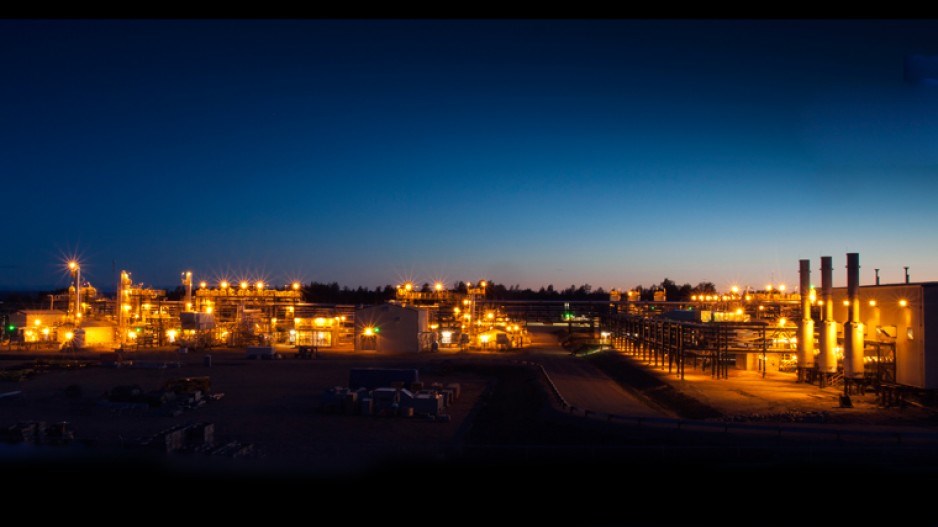A glut of natural gas and natural gas liquids in North America is proving too much of a good thing for oil and gas companies, which are cutting back on production and investment in new gas plays.
While a gas bonanza in B.C. continues to drive investment by companies like Spectra Energy (NYSE:SE), which is spending $1.5 billion to build new gas plants in northern B.C., investment in general in the B.C. gas sector is down, as it is elsewhere in North America.
Land sales in northern B.C. have been tailing off, according to the Daily Oil Bulletin, and the Petroleum Services Association of Canada forecasts a 22% drop in the number of wells to be drilled in B.C. in 2012, compared with 2011.
Carlos Salas, vice-president of oil and gas for Geoscience BC, said the drop reflects abundant supply, "and that's sending a signal to companies to respond."
"The demand side hasn't caught up, so that's why producers are cutting back," added Gary Weilinger, Spectra Energy's vice-president of strategic development. "The more you drill, you're just exacerbating your existing problem."
Oil and gas companies get more bang for their buck in wet gas plays, like the Montney Basin near Dawson Creek, where they get two principal fuels: natural gas and natural gas liquids (NGLs) like butane, propane and ethane.
The price for ethane-propane in the U.S. has dropped 58% since January. In other words, what happened to natural gas is now happening to NGLs, so producers, hit with declining revenue, are now scaling back production and investment.
"We're seeing what we believe to be a near-term phenomena on depressed natural gas liquids prices because the overall economy hasn't picked up as quickly as we would have liked to see in the U.S. and Canada," Weilinger said.
In 2008, the province generated $2.66 billion in land sales as oil and gas companies rushed to lock up land in B.C.'s gas fields. By 2011, sales had fallen to $222 million.
Year-to-date, land sales stand at $87.54 million.
Some of the more productive land is already locked up, but that only partially explains the decline because huge reserves of shale gas are still being found in B.C.
In June, Apache Corp. [NYSE: APA] announced it had tapped what it dubbed the "best unconventional gas reservoir in North America" in the Liard Basin north of Fort Nelson.
Despite such finds, many companies are sitting tight because they have neither the revenue nor the market for new gas – they have more than they can sell.
"A number of the big players have secured what they believe to be a very competitive position," Weilinger said, "so before they go and acquire more, I think they'd like to start producing more from the lands that they have already acquired. Some of the smaller ones that just don't have that financial flexibility, they really just have to sit on the sidelines for a while and wait for the market to catch up."
Lower gas prices and sluggish land sales mean less revenue for the province. Natural gas royalties hit $1.9 billion in 2005-06. They dropped to $817 million for 2010-11. Year-to-date royalties were just $286 million for 2011-12.
Despite the oversupply, companies like Spectra continue to invest in B.C. On July 13, the company officially opened a new gas processing plant near Dawson Creek and is building another plant northeast of Fort Nelson area in the Horne River basin that's scheduled to go into production by the end of the year.
A second phase of the Dawson Creek gas plant will be built in 2013's first quarter.
The plants are part of a $1.5 billion investment in gas processing and distribution networks that is being driven by a shale gas boom.
The current gas glut in North America underscores why it is so important for B.C. to quickly develop its liquid natural gas industry, said Geoff Morrison, manager of B.C. operations for the Canadian Association of Petroleum Producers.
"We need to diversify our markets."




